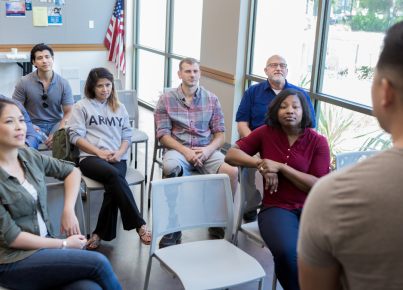As the Veteran population continues to grow, many Veterans are looking for meaningful employment that will allow them to transition back into civilian life. Unfortunately, the transition process can be difficult, and it can be hard to know where to start. Fortunately, there are resources available to help Veterans find the right job and successfully transition into the workforce.
The first step in the Veteran employment process is to identify what type of job they are looking for. Veterans should consider their skills, interests, and experience to determine the type of job they want. They should also consider what kind of job would provide an adequate salary and benefits package. Once Veterans have identified the type of job they want, they should create an updated resume and cover letter that highlights their military experience, skills, and abilities.
The next step is to research potential employers and job openings. Veterans should look for employers who are specifically looking for Veterans, as these employers are more likely to understand the unique transition process that Veterans face. Veterans should also look for job postings that match their skills and experience.
Once Veterans have identified potential employers, they should begin networking and applying for jobs. Many employers have special programs and initiatives to help Veterans transition into the workforce. Veterans should also consider attending job fairs and networking events to meet potential employers.
The last step in the Veteran employment process is to practice for job interviews. Veterans should practice common interview questions and be prepared to discuss their military experience, qualifications, and career goals. It is also important for Veterans to be aware of their rights and benefits, such as preferential hiring or veterans’ preference.
The transition process can be difficult, but there are resources available to help Veterans find meaningful employment. With the right preparation and guidance, Veterans can successfully transition into the workforce and find the job they are looking for.
How can the government make it easier for veterans and reservists to get employment?
As our nation’s veterans and reservists return home from service, they often face a difficult transition back into the civilian workforce. The government can play a critical role in helping these individuals find employment and make the transition smoother.
One way the government can help veterans and reservists is by providing more resources and assistance in the job search process. This can include offering career counseling, job fairs specifically for veterans, employment, and employment workshops. Additionally, the government can provide job training and assistance with resume and cover letter writing. These resources can help ensure veterans and reservists have the necessary skills and qualifications to be competitive in the job market.
The government can also offer incentives to employers to hire veterans and reservists. This could include tax credits or grants for businesses that hire veterans and reservists. Additionally, the government can create initiatives to connect veterans and reservists with employers, such as job placement programs or job banks.
Finally, the government can take steps to ensure veterans and reservists are aware of the resources available to them. This could include providing information about job search assistance on websites dedicated to veterans and reservists, as well as through social media and other channels. Additionally, the government can work with veterans’ organizations to ensure veterans and reservists are aware of the resources available to them.
By taking these steps, the government can make it easier for veterans and reservists to find employment and make the transition back into the civilian workforce smoother. With the proper resources and assistance, veterans and reservists can find meaningful employment and contribute to their communities.







You must be logged in to post a comment.